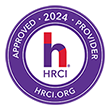COVID & Key Compliance Issues Under OSHA's General Duty Clause
Summary
OSHA enforcement standards are continuingly being modified in reaction to COVID-19, leaving employers and Safety Managers unsure of the latest rules and enforcement actions. While enforcement actions at the federal level are mainly falling under the OSHA General Duty Clause, many state OSHA agencies are adopting their own level of emergency standards as well.
Employers need to fully understand their responsibility and risk of citation under the General Duty Clause, and what the additional level of state standards means for your safety policies, practices and compliance.
In this up-to-the-minute program, we’ll cover:
- Latest OSHA expectations and standards for handling COVID related illnesses under the General Duty Clause
- Rules affecting OSHA’s inspection practices and access to employee records
- Federal OSHA vs. state OSHA recording and reporting requirements for COVID-19
- Impact of state level OSHA emergency standards – even if it’s not in your own state
- Employer responsibility for investigating any claims of work-related COVID illness
Program Highlights
Federal & State OSHA Standards for Handling COVID-19 and Enforcement
- The latest federal OSHA policy on COVID-19 enforcement procedures
- Which states have adopted emergency standards to address COVID-19
- Federal OSHA vs. state plan authority for standards development and enforcement
- When inadequate responses to workplace COVID transmission can result in criminal penalties against both companies and supervisors
- How whistleblower protections apply to cases of COVID-19 in the workplace
Managing COVID In and Outside of the Workplace
- What types of comments about COVID-19 are protected on social media regarding the workplace
- How recording and reporting of occupational illnesses should be handled for COVID-19
- What is needed beyond social distancing, face masks and hand sanitizer to have an effective COVID-19 management program
We’ll address employers’ key questions & concerns including:
- The new maximum $145,027 penalty, which can be applied per exposed worker
- Questions on OSHA and CDC COVID-19 guidelines and what’s enforceable
- Can OSHA access worker’s comp records to see if we have filed a COVID claim for an illness?
- What are the elements of a General Duty Clause citation, and what are the employer’s responsibilities when it comes to COVID?
- Uncertainty about how detailed COVID plans and training must be for each worksite
About the Speaker
Adele Abrams is an attorney and Certified Mine Safety Professional, who is the president of the Law Office of Adele L. Abrams PC, a multi-attorney firm with offices in the DC area, Denver and WV.
She represents employers nationwide in OSHA and MSHA litigation. Adele also provides safety training, consultation and auditing services. She is the 2017 recipient of the National Safety Council’s DSSA award, and is an active member of the American Society of Safety Professionals, where she has received the SPY award multiple times. Adele is also on the faculty of the University of Colorado, and Catholic University, where she instructs on employment, labor and occupational safety law.
Program Benefits
We’ll provide you with the latest information on OSHA enforcement of COVID-19 standards under the General Duty Clause, as well as other key compliance areas. Learn what it takes to remain compliant with the ever-evolving rules and regulations.
If you'd like this program customized for your organization, call us at 1-800-964-6033.
We're certain we can fulfill your training needs, while making it fit in your budget!
HRCI Credits

This program has been approved for 1 (HR (General)) recertification credit hour toward aPHRTM, aPHRiTM, PHR®, PHRca®, SPHR®, GPHR®, PHRiTM and SPHRiTM recertification through the HR Certification Institute. Learn more at hrci.org
BCSP Points

For this one hour program you may claim 0.05 continuance of certification points (COC's) from the Board of Certified Safety Professionals (BCSP).
Please submit a request to obtain proof of your participation and a certificate of attendance will be emailed within 2-3 days.
Purchase this On-Demand Workshop
COVID & Key Compliance Issues Under OSHA's General Duty Clause
$199 + applicable taxes
You will receive access to the live event(s) which includes a copy of the speaker's presentation, real-time training with our expert instructor, and an interactive question & answer period. Two to three business days after each live training concludes, an email is sent to registrants which contains a link for unlimited access to the on-demand recording you can revisit & review.
You'll receive a link to access the recording(s) in your order confirmation email. On-demand recordings also include a copy of the speaker's presentation and the ability to submit your questions to the expert, for up to 7 days after viewing.
$300 + applicable taxes
You will receive access to the live event(s) which includes a copy of the speaker's presentation, real-time training with our expert instructor, and an interactive question & answer period. Two to three business days after each live training concludes, an email is sent to registrants which contains a link for unlimited access to the on-demand recording you can revisit & review.
You'll receive a link to access the recording(s) in your order confirmation email. On-demand recordings also include a copy of the speaker's presentation and the ability to submit your questions to the expert, for up to 7 days after viewing.
$499 + applicable taxes
You will receive access to the live event(s) which includes a copy of the speaker's presentation, real-time training with our expert instructor, and an interactive question & answer period. Two to three business days after each live training concludes, an email is sent to registrants which contains a link for unlimited access to the on-demand recording you can revisit & review.
You'll receive access to our full library of on-demand trainings along with the speaker's presentation and handouts for each event.
$899 + applicable taxes
You will receive access to the live event(s) which includes a copy of the speaker's presentation, real-time training with our expert instructor, and an interactive question & answer period. Two to three business days after each live training concludes, an email is sent to registrants which contains a link for unlimited access to the on-demand recording you can revisit & review.
You'll receive access to our full library of on-demand trainings along with the speaker's presentation and handouts for each event.
Guaranteed to be Good
All training experiences include a 7-day 100% money-back guarantee.
Full-Team Pass
Simply share the invite link with your team so you can learn and grow together!
Yours Forever
The event recording and materials are yours to rewatch and share as you choose.


